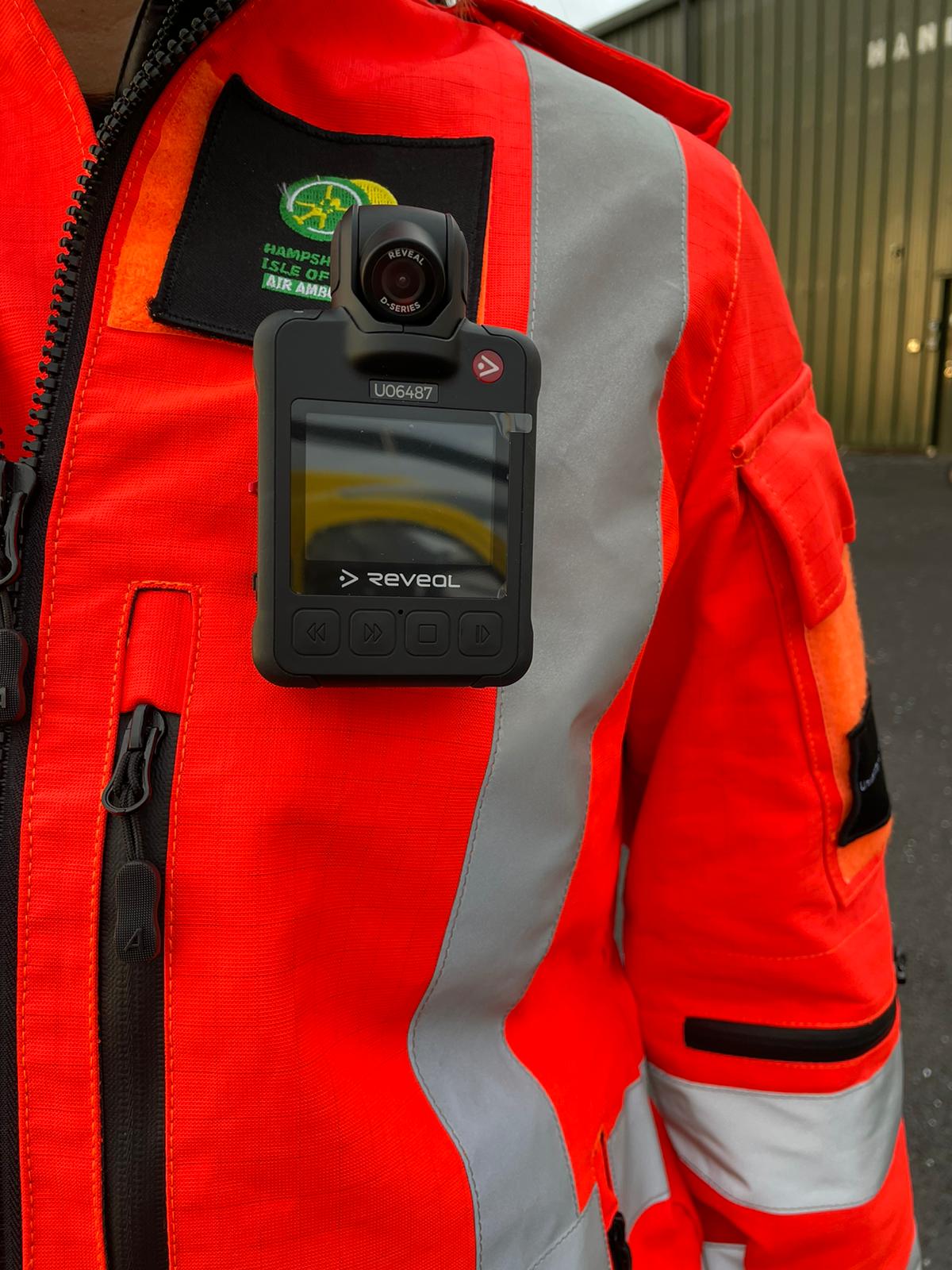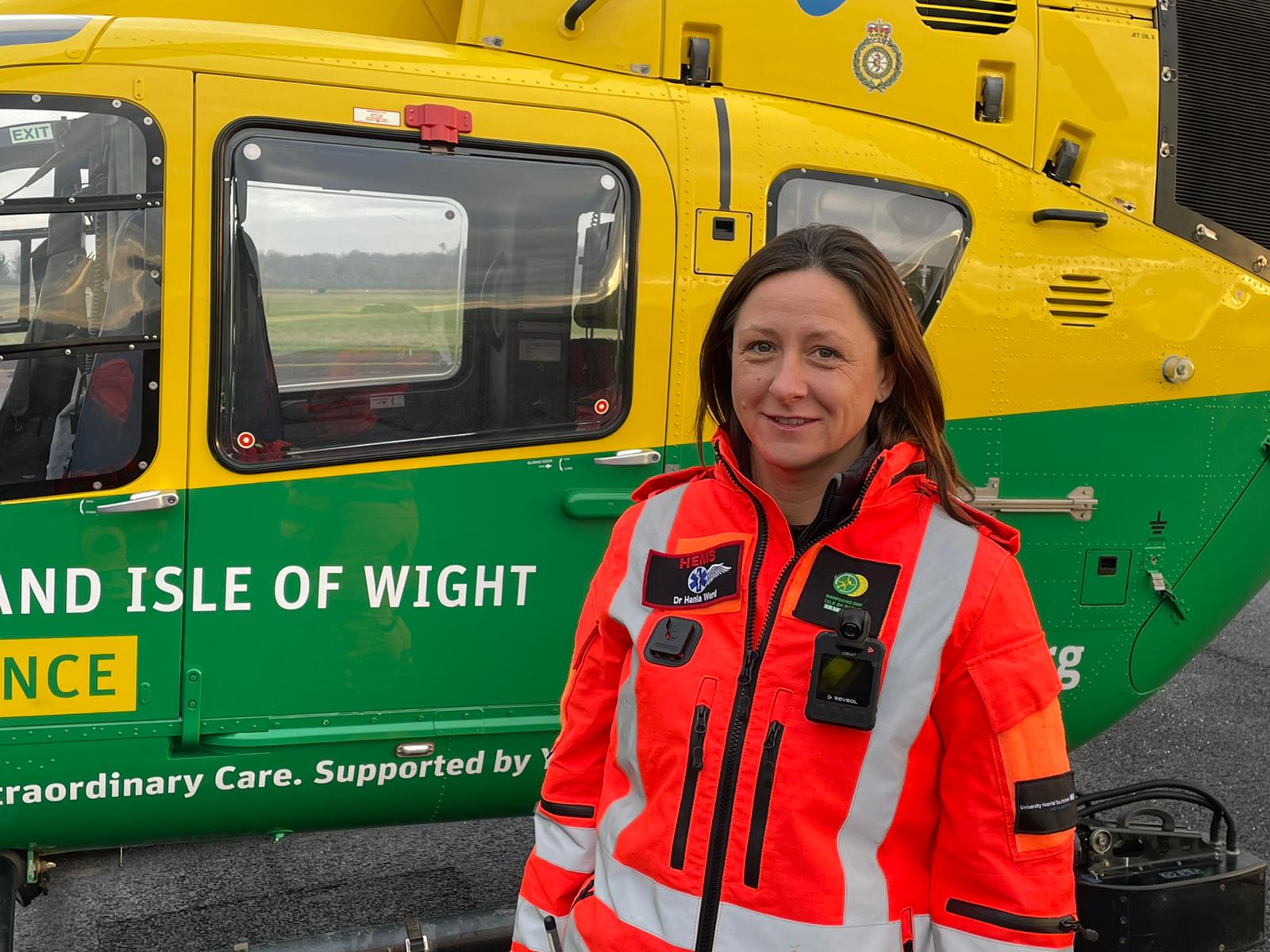Photographs and Recordings – Terms and Conditions
We often take video footage using body worn video cameras (BWVC’s) whilst we are attending to you during your medical emergency.
 Why do we take recordings?
Why do we take recordings?
- We frequently operate in very challenging and dangerous environments (for example on the motorway carriageway at night time) and are at risk of personal harm (either from the environment or occasionally from members of the public). BWVC’s serve as a deterrent against personal violence, and also record.
- To record clinical information to help hospital clinical staff involved in your care look after you. For example, if you have serious wounds or a badly broken bone we might take a short video recording before and after we provide treatment and show that to the admitting emergency team at hospital.
- To allow senior advice to be given by the on call Duty Consultant Doctor to the clinical team treating you in certain very challenging scenarios. The team treating you can ‘live stream’ the video footage from the scene via the Body Worn Video Camera to the Duty Consultant who is then able to give advice in a much more informed manner.
- To enable our doctors and paramedics to make sure we continue to provide our patients with the best care. We perform complex procedures usually only done inside hospital and review of techniques makes sure we improve all the time. The team treating you debrief the case when they get back to base to help continually improve the care we give. Video footage of how they treated is invaluable to aid this debrief discussion.
- Where there are important debriefing points that will help other members of the air ambulance team to improve the medial care we give then very occasionally the team will choose to share a short part of the footage at the next team meeting (clinical governance day). This is always within 30 days and only the air ambulance medical team are allowed to attend. Footage would be destroyed immediately afterwards unless there is legal requirement to retain the footage for a longer period.
- To undertake evaluations and audits of our service to you. For example, we might wish to audit the time it takes our teams to mobilise after a 999 call or review the technique in undertaking a rare but vitally important procedure.
- Occasionally we are called to situations where there is a risk of verbal or physical assault against our team. Body Worn Cameras provide both a visible deterrent against assault to our staff and recordings may be used in evidence if an assault does occur.
Your agreement is important
We will always try and explain when and why we would like to make a recordings and ask for your consent. If you refuse consent we will not start recording (except in circumstances described in point 7 above). If for any reason recording has started and you wish us to stop we will immediately comply and cease recording and destroy the footage as soon as we return to base.
Because of the emergency nature of our work, sometimes it is not possible to go into detailed explanations at the time, and many of our patients are not able to give consent (for example if they are unconscious). As recordings are for feedback to the air ambulance team only we will not normally ask for your consent afterwards.
You can change your mind or withdraw your consent at any time and it will not affect your treatment in any way.
There are some circumstances where we do not need your permission, although, we try to make sure you agree where possible. We also do not need to gain your consent if we have a safeguarding concern or there is an immediate threat to the safety of our team, other emergency colleagues or the public.
Our pledge to you
We have a ‘Caldicott Guardian’ who is there to protect your confidentiality. This is a statutory position held by a senior Executive at University Hospital Southampton. They ensure that your information is kept safe and confidential and is only shared when appropriate.
We fully comply with the Data Protection Act 2018 and the UK General Data Protection Regulation (UK GDPR) The Trust privacy notice provides full details of how your data will be used.
We will always treat you with dignity and respect. We know you place absolute trust in us: please tell us if we break that trust in any way.
Sharing images and recordings
No video footage is shared outside of the Air Ambulance clinical team with the exception of the rare circumstance below*. In the majority of cases footage is reviewed only by the Air Ambulance Doctor(s) and Paramedic(s) that were involved in your direct care. Occasionally where there are specific learning points for the rest of the Air Ambulance Doctors and Paramedics this footage may be reviewed at the next monthly Clinical Governance meeting to help improve our care to all our patients. Only Air Ambulance staff are allowed at these meetings. Footage would be destroyed immediately after the meeting.
*We are obliged to provide information, including photographs or footage, to others who have a lawful reason for requesting them, such as the Coroner, court order or Police. There is a specific legal process that has to be followed before we will release footage.
The footage is not classed as forming part of your medical record and therefore there is no automatic right for a patient to access the footage. It is possible to request footage but normally this would only be shared under exceptional circumstances.
Storage
Video footage is kept securely on the camera in an encrypted format then downloaded onto a secure server (at which time it is automatically deleted from the camera). The cameras we use are the same used by the Police and therefore have very high levels of encryption and security. Audiovisual recordings of missions can only be accessed through the secure computer on base and are not accessible on the internet. We have a very strict policy of who can view footage and access is limited to our clinicians (doctors and paramedics) only. This is also governed by statutory legislation.
How long do we keep it?
Audiovisual recordings are usually deleted at 48 hours. Occasionally there may be a specific intervention or incident which demonstrates something of special value and there are specific points for dissemination to the clinical team (at Clinical Governance meetings). In this case footage may be kept for 30 days. The Data Protection Officer will fully assess any request for footage to be kept longer than the agreed time period.
We will not use the footage for anything else unless there is a legal requirement to do so (this is very rare).
If you have any concerns or worries
Please email: [email protected]
Or write to us at:
Body Worn Video Camera Lead
Hampshire & Isle of Wight Air Ambulance
Hangar 2B
Thruxton Airfield
SP11 8PN



 Donate
Donate
